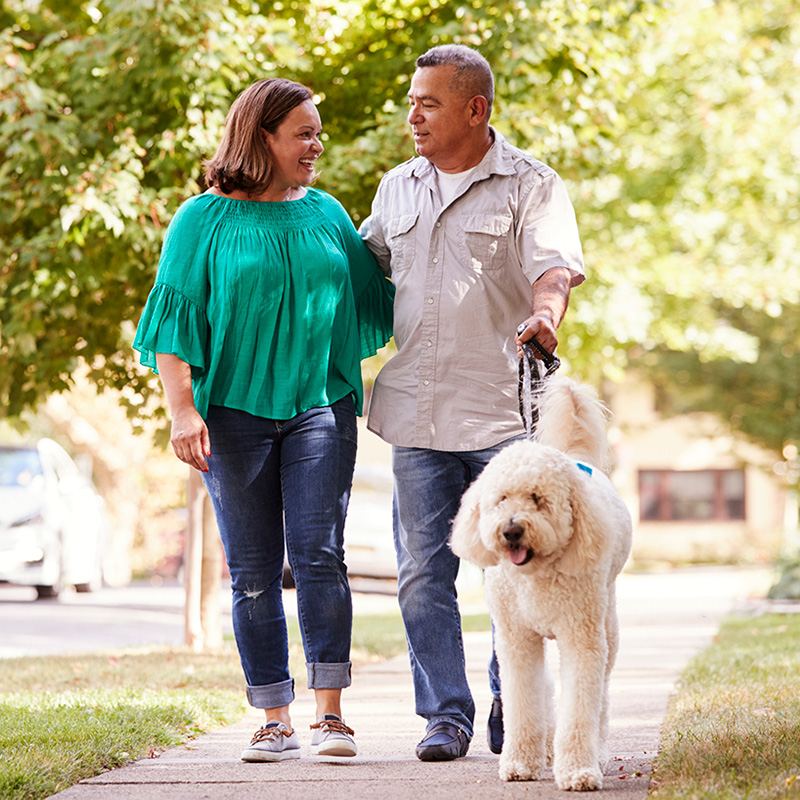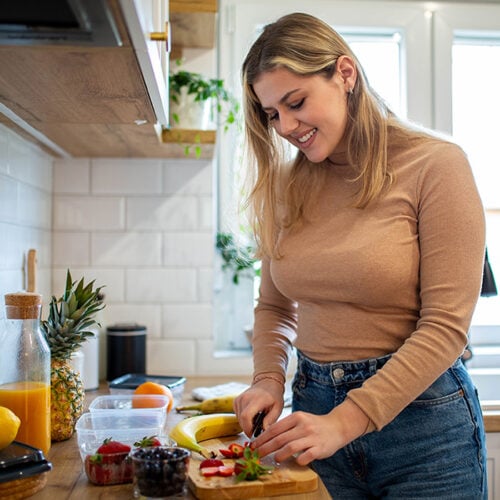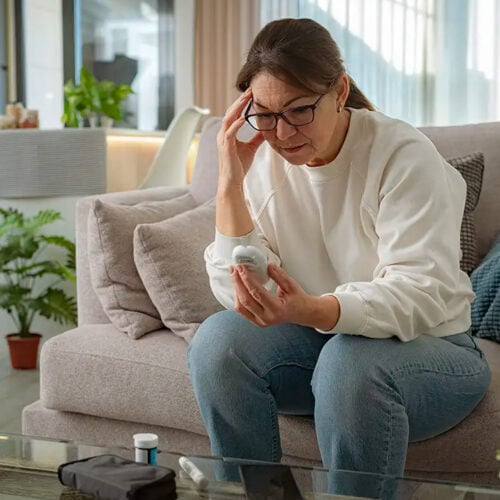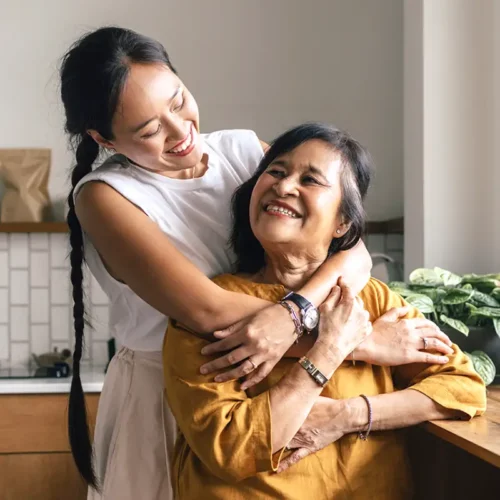Connecting with your community
Socializing and finding community can significantly aid in your stroke recovery
Talking and being with your friends and family is an important aspect of stroke recovery that can help stroke survivors recover faster than those who are isolated. Talking with others can help you maintain a sense of emotional support and comfort, which can lessen your risk of depression1. Studies have shown that socializing can improve functionality post stroke2 and may lead to a quicker and more thorough recovery3.
Returning to social activities may feel intimidating or uncomfortable after a stroke and you might notice a shift in the types of interactions you feel comfortable with, but there are ways to ease back into your social life. For example, socializing does not need to include overwhelmingly large groups of people or crowded locations. Start with simple social interactions such as saying hello to your neighbor, walking your dog, or having friends over. Any kind of social interaction you are comfortable with can benefit your mental health and identity.
Maintaining Existing Relationships
You may be busy during your stroke recovery, making it difficult to nurture previous relationships with friends and family. It can also be challenging if your significant other has become your care partner if their new role begins to overshadow your previous relationship. It is important to spend quality time together, even with simple activities such as going out to eat, watching a movie, or spending time outdoors.
It is normal to want to stop seeing people after a stroke. Stroke survivors often tell us that they are embarrassed or don’t feel safe, but pulling away from people who care about you can make you feel more isolated and lead to depression. Depression can cause social withdrawal that may be dangerous to your health. Talking with your family and friends about how you are feeling and when you need help is important.
There is a possibility that you may lose some friendships after a stroke or some relationships may look different, which can lead to feelings of grief and loss. Working through these feelings may take time and patience, but know that you are not alone. Sharing these feelings with professionals or with close ones can help.
Managing Barriers to Socialization
If you are feeling overwhelmed by your recovery or social interactions, start by seeing a close friend or family member that makes you feel comfortable. Consider meeting your friend in a familiar and safe environment that is not overstimulating.
If you are not driving after your stroke, there may be free or discounted transportation options available that can help you go and see friends and family. Friends and family can also come to visit you at your home. Simply visiting, talking on a porch, or walking around your neighborhood are all ways in which you can socialize in your home.
Fatigue and other post-stroke changes may impact your comfort in socializing. Re-engaging in social activities can feel tiring; consider different strategies to maintain a balance between the costs and benefits of socializing. Remember that even if socializing feels different than before your stroke, your interactions with others can be very beneficial in your post-stroke recovery.
Finding New Community
Expanding your community to include new sources of support can also be helpful. Sharing your thoughts and feelings with other survivors in your community, who might share the challenges you are experiencing, can be comforting. Other stroke survivors may also be able to provide valuable advice about socializing after stroke or share their perspectives about the recovery journey in general. Virtual stroke survivor support groups, such as those offered through Kandu, can offer a safe space to socialize with people in the stroke community.
Kandu Connect Groups are facilitated by Kandu Ambassadors– stroke survivors and care partners with lived experience. The Kandu Connect Groups provide participants with a sense of community and belonging to support them on their recovery journey.
Interested in learning more about Kandu?
Citations
- Tsouna-Hadjis E., Vemmos K.N., Zakopoulos N. & Stamatelopoulos S., 2000, ‘First-stroke recovery process: The role of family social support,’ Archives of Physical Medicine and Rehabilitation 81(7), 881–887. 10.1053/apmr.2000.4435
- Glass T.A. & Maddox G.L., 1992, ‘The quality and quantity of social support: Stroke recovery as psycho-social transition,’ Social Science & Medicine 34(2), 1249–1261. 10.1016/0277-9536(92)90317-J
- Glass T.A., Matchar D.B., Belyea M. & Feussner J.R., 1993, ‘Impact of social support on outcome in first stroke,’ Stroke; a Journal of Cerebral Circulation 24(1), 64–70. 10.1161/01.STR.24.1.64\



